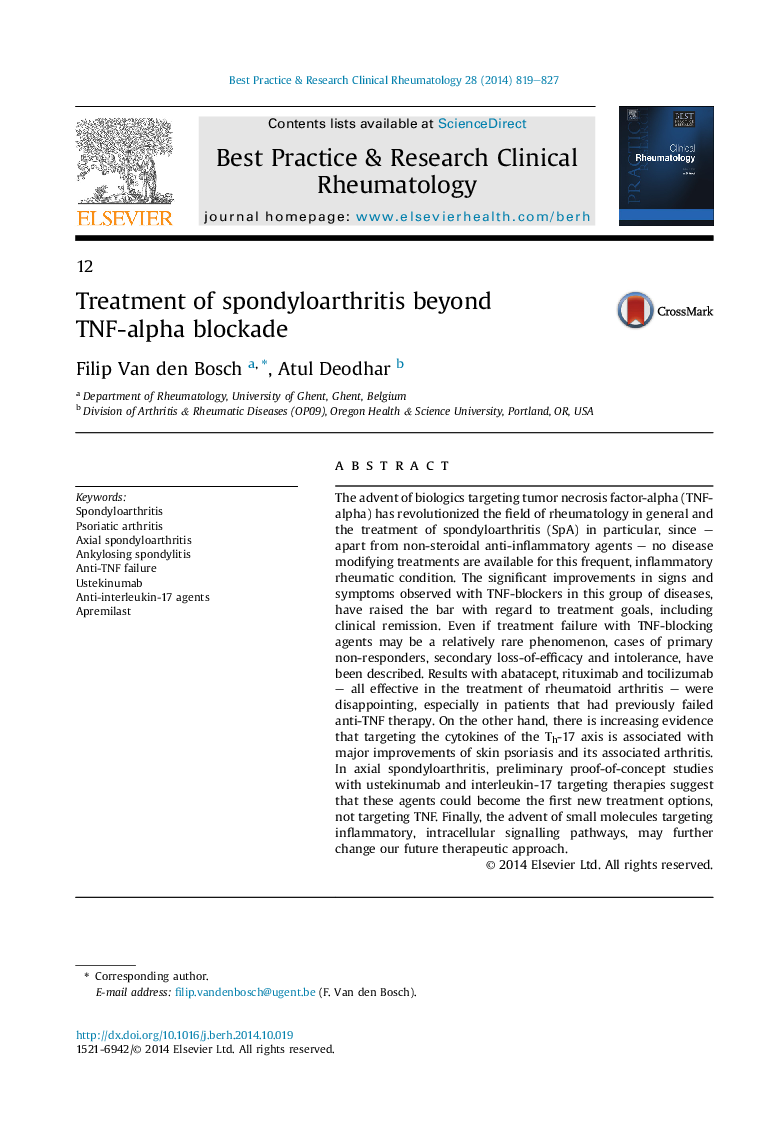| Article ID | Journal | Published Year | Pages | File Type |
|---|---|---|---|---|
| 3343079 | Best Practice & Research Clinical Rheumatology | 2014 | 9 Pages |
The advent of biologics targeting tumor necrosis factor-alpha (TNF-alpha) has revolutionized the field of rheumatology in general and the treatment of spondyloarthritis (SpA) in particular, since – apart from non-steroidal anti-inflammatory agents – no disease modifying treatments are available for this frequent, inflammatory rheumatic condition. The significant improvements in signs and symptoms observed with TNF-blockers in this group of diseases, have raised the bar with regard to treatment goals, including clinical remission. Even if treatment failure with TNF-blocking agents may be a relatively rare phenomenon, cases of primary non-responders, secondary loss-of-efficacy and intolerance, have been described. Results with abatacept, rituximab and tocilizumab – all effective in the treatment of rheumatoid arthritis – were disappointing, especially in patients that had previously failed anti-TNF therapy. On the other hand, there is increasing evidence that targeting the cytokines of the Th-17 axis is associated with major improvements of skin psoriasis and its associated arthritis. In axial spondyloarthritis, preliminary proof-of-concept studies with ustekinumab and interleukin-17 targeting therapies suggest that these agents could become the first new treatment options, not targeting TNF. Finally, the advent of small molecules targeting inflammatory, intracellular signalling pathways, may further change our future therapeutic approach.
